- Home
- Seanan McGuire
Submerged Page 19
Submerged Read online
Page 19
Still, with all that scariness about distance, falling, and drowning, whatever was swimming below us was only one-hundred and thirty feet away, less than half a football field. They looked like seals, sort of—same size but with rounder heads and human features. Short arms with hands that flattened against their sides when they shot around, which they could, powered by strokes from their fin-like feet.
“How hot is it at that depth?” asked Maggie.
I thought that was an interesting reaction. “That’s just below where they start mixing in cold water. Maybe a hundred and fifteen degrees. You can feel it getting warmer the deeper you go.”
“A better question,” said Harris, “is what are they?”
I shrugged. “Something that lives deeper down. Thermophiles.”
Harris looked at me.
“Heat lovers,” said Maggie. “Do they ever surface?”
“I’ve never seen them come up much above the deepest light. My guess is that the water is too cold for them higher up, or they need the pressure.” I’d seen them first a couple weeks after they installed the lights, and only when the blue lights were on. Never during the day. Too dim to photograph them, and then after a while I figured nobody needed to know. Authorities would close the pool, of course, to investigate, which would mean I’d be job hunting again, and I just liked the idea of them. They weren’t bothering anyone; why should we bother them?
“What are they doing?” asked Harris.
There were eight or nine creatures. They gathered together in a clump for a minute, then spread out, leaving one in the middle. After thirty seconds they all stopped, scattered around the middle one who started swimming a wandering route. Every few seconds, all the ones not in the middle would shift a couple of feet in unison like a school of fish changing direction at the same time. It was interesting to watch. When the middle one got close to another, the other would move slowly away, as if avoiding the middle one’s path, or sprint off while the other gave chase. Things would be frantic for a few seconds. When the moving one touched another, they’d group to start again.
They swam gracefully, like ballet. In the pool’s blue light, the dance was surreal and beautiful.
Maggie broke the silence. “Doesn’t that look familiar?”
It did look familiar. To a veteran guard like myself, I should have seen it right away. “Marco Polo.”
Maggie flopped onto her stomach, head hanging over the edge like we did last night. “They probably don’t have good vision, if they live in the depths. I’ll bet they’re sensitive to movement, so whoever is ‘it’ closes his eyes, says the equivalent of ‘Marco,’ and all of them shifting position is their version of ‘Polo.’ They’re kids. We’re watching a game.”
“I thought I was hallucinating last night when I saw them,” said Harris. “They went deep before dawn. So you don’t think they’re dangerous? I was afraid they were…water werewolves.”
I laughed. “You went supernatural? Were-seals?”
Maggie said, “There’s not a full moon, Harris.”
He looked sheepish. “Then they’re an undiscovered species.”
“No doubt. Nevada has more hot springs than any state in the union. They might not be limited to here. But they’ve never been seen, and that may be what has saved them. Have another beer.” I handed him a cold one. “We’ll keep it as our secret.”
We told dirty jokes for a while. Turned out that Maggie was practically an encyclopedia of them, although Harris, once he got going, knew a couple toe-clinchers himself. Meanwhile, the were-seals, or whatever they were, continued playing their game. We kept an eye on them. I think that’s just what lifeguards do, from habit. You can’t spend hours and hours watching out for people’s safety without it ingraining in you a bit. Heck, when I’m in a mall, if a kid runs past me, I have to bite back my reflexive, “No running on the deck!”
So we saw the same thing and interpreted it the same way. The game below had gotten faster and faster. Less searching around and more flat out tag. Like kids in a pool, I’ll bet that whoever was “it” was peeking a lot to see where the others were. Lots of chasing. A bigger were-seal was it and had cornered the smallest one. The small one went left, but the bigger one cut it off. It went right, and the pursuer shifted again. Unexpectedly, the little one swam hard straight up in a panic. The big one chased for twenty feet and then veered off, but the little one didn’t look back. It powered toward the surface much quicker than we could swim. At fifty feet, though, it slowed, turned around, twitched its feet-fins twice, and then was still.
I’d seen drowning before. The struggle, if any, is short, and the body goes still in a horribly unique, limp way that is unmistakable.
“It’s in trouble,” said Harris.
What do you do in an emergency? As a guard, I’m pretty instinctive. No hesitation. But I must not have thought of this that way. Neither did Maggie. Harris, though, ripped his shirt over his head and dove.
It took just a few seconds, but it played out in slow motion: Harris falling, his hands pointed to the water, in perfect diving form; the were-seals looking up, their faces clear; and then he cut through the water, a flaming blue plume of bubbles behind him. His momentum took him only halfway there. With strong, sure strokes, he drove himself deeper. He grabbed the still form—it was less than half his size—and then continued down, slowed by the burden. Harris was a powerful swimmer. He kicked hard and pulled with his free hand.
I could feel myself pulling with him, arms aching, lungs burning. “It’s too hot that deep.”
Harris reached the were-seals. He pushed the limp one toward them, then started up. His motions, at first sure and rhythmic, became weaker. Bubbles trailed up from his mouth. He quit moving at about where he’d grabbed the creature, fifty feet from the surface.
My shirt flew off. I jumped, feet first, and realized Maggie was plunging down in front of me. She beat me off the platform by a tenth of a second.
Harris’s hands dangled lifelessly above him while he hung suspended, unmoving. I’d never gone this deep. The water pressed cruelly, smothering, and hot, so hot. I gritted my teeth against a scream. Everything in me wanted to turn around. How had Harris gone this far? How had he continued down?
I grabbed a wrist the same time Maggie got the other. Then I kicked with all I had toward the sky. I gasped when we surfaced, still pulling Harris to the side, kicking hard. On the deck, he didn’t move. His skin had turned crimson, like a lobster. I cupped my hand behind his neck, opened his mouth, and began resuscitation. Maggie held his wrist. “I can’t feel a pulse.”
But after a couple minutes, he coughed hard, and I turned him on his side. He moaned, and spit up water. I stayed close and patted his back.
In the pool, down in the blue light, the were-seals had clumped around the one Harris had taken back to them. Larger ones appeared from below. Their arms were paler than the small ones, and their faces more distinct, very human-like, with large, dark eyes. The little one stirred weakly. A couple of the bigger ones steadied it, then it kicked itself forward a few feet, turned to look at them, then swam purposefully down and into darkness below the lights. The rest followed, and the pool was empty and motionless once more.
Harris rolled onto his back, red as a stoplight. “That’s some tough tacos.”
We hustled him into the shower and ran tepid water over him to cool him down. At the hospital later, they gave him pain pills. The emergency room doc said he’d never seen a full-body scald before: a head to toe first degree burn.
That fall I moved to Elko and took a job as head guard at the Elko Swim Pool in Johnny Appleseed Park while Maggie finished her last year in Criminal Justice. Harris stayed at High Sulfur Hot Springs Pool and Camping Park where he eventually became the aquatics supervisor. We get together a couple of times a year. This year we celebrated Maggie’s thirtieth by going up on the ten-meter platform after the pool closed. No tequila this time. I had set up a blanket and beanbag chairs earlier with a couple
pricy bottles of wine. Harris brought cheese, crackers, and chilled shrimp.
Scaffolding covered much of the casino side that faced us. They were renovating and adding more rooms, but the desert looked exactly the same. Moonlight painted the bluffs with bone-white light and the shadows were unfathomable. Up here, above the sulfurous water, I smelled only cactus and the long, empty land. We weren’t dressed to swim this time.
The three of us stood at the edge, wine glasses in hand, looking down into the great blue eye that looked back at us. “They’ve never come up,” said Harris. “I’ve waited for them for years.”
Maggie said, “I have dreams about this place sometimes.”
I’ve guarded a lot of pools. There’s something about the water, kids laughing, the smell of sunscreen that I can’t escape. I’ve had dreams, too, where the water grows hotter and hotter, and were-seals surround me, wide-eyed and pale-limbed, swimming with delight in the heat. Everything is blue and I’m joyous. My friend saved someone, and Maggie and I saved him. I have the hot springs dreams too, and they’re always good.
I put my arm across Maggie’s shoulders. “Happy birthday, sweetheart.”
She hugged me back.
THE CITY UNDER THE SEA
J.C. Koch
“Solar Command, this is Pilot Melissa Katano of Neptune Ten. We are coming into range of the planet.”
“Roger that, Neptune Ten. All systems are go. Proceed with landing and exploration.”
Commander James Conason heaved a sigh. “Ready?”
Katano nodded. “As we’ll ever be.” The rest of the command crew agreed.
The Neptune Program was tasked with exploring the outer planets of the Solaris System. They were a long way from Neptune, let alone Earth, but they were about to do what no human had done before—visit Planet Nine. Or, as their Science Officer and Co-Pilot Kathi Schreiber insisted, Planet Ten. She was big on supporting the Plutonian viewpoint that it counted as a full and real planet.
Conason didn’t have an opinion about Pluto one way or the other. So much of the Solaris System had been claimed by Earth and turned into new homes for humanity that many of the moons could lay claim to being planets by now. Planet Nine could, using that viewpoint, be called Planet Thirty-Seven as easily as Nine. But Nine it had been called since the early part of the twenty-first century and the name had stuck.
It was a huge, black orb. Sol looked like a star from this far away, not the sun that had given life to humanity. There were smaller moons, thirteen of them, each larger than Pluto, all circling Planet Nine like the old pictures showed the electrons circling the nucleus of an atom. The moons all had what looked like clouds or weather patterns. The planet, however, seemed weather-free.
“How long before we land on Yuggoth?” Flight Engineer Joshua Adams asked.
“Oh, not that again,” Schreiber said good-naturedly. She was the only one who was still willing to humor Adams about his religious obsessions.
“Thirty Earth minutes before we’ll be able to start the exploratory orbit of Planet Nine.” Katano didn’t snap at Adams because she was a professional, and calm and cool under pressure, but Conason knew she wanted to.
Katano was a great pilot, and Schreiber was right there with her, the two women the best team in the System, at least as far as Conason was concerned. He’d been working with them for at least a decade now and planned to do so until he died, they were that good. He could pilot the ship, of course, but why, when he had the two best in the System on his crew?
In the olden days of space travel, it would have taken them ninety minutes to circle the Earth. Planet Nine was at least four times Earth’s size. But ships were better now—faster, more maneuverable, able to fly to a planet, explore it, and reach escape velocity regardless of the planet’s pull. Neptune Ten was the most advanced ship ever made. Conason was proud—of his command, his ship, his crew.
“It’s certainly as dark as we expected,” he said.
“Yuggoth—the strange dark orb at the very rim of our solar system,” Adams said. “We’re so lucky. We’re going to be the first who get to greet the Old Ones.”
Conason bit down on all he wanted to say. The Cult of the Old Ones was strong throughout the Solaris System, and religious tolerance was something that was stressed as vital to the well-being of all the system’s inhabitants. Most people in the Cult were quiet about it, going on about their lives pleasantly, willing to witness if another showed interest, but rarely trying to force their religion down others’ throats.
But Adams was different. Not only was he a fervent member of the Cult, he was also a scholar of their original texts, texts that were created in the twentieth century as entertainment. But if someone mentioned that to Adams, he just pointed to other religious texts and said they were stories that had been created, too. It was hard to argue with the logic.
Adams had worked harder than anyone to be on this mission, but the six months it had taken to reach Planet Nine were some of the longest of Conason’s life, and it was all due to Adams and his constant quoting of his religious texts.
“Is Josh blathering on about his religion again?” Payload Commander Janelle Rothstein asked with a laugh as she came into the command section. “You know, I could demand that we all wear kippahs when we go out there, if we need to add some other religions into the mix.”
“He is,” Mission Specialist George Phillips said. “And, you know, Josh, it was funny at first. Now I, personally, would appreciate it if you stopped quoting at us all the time and actually did your job. Janelle doesn’t quote the Torah, I don’t recite from the Quran, James isn’t reading Bible passages aloud, Melissa’s not quoting Buddha at you, and Kathi doesn’t constantly tell you that she believes in science not gods. Could you please stop quoting Lovecraft to us?”
“I always do my job,” Adams replied mildly. “I wouldn’t complain if you all chose to share what you believe with me. The Old Ones allow us to worship as we want, because they know they are the True Gods. We all must do what we can to prepare the way for the Great Cthulhu and His Family to return.”
“That’s all,” Conason said, before the crew lost their tempers. “Now isn’t the time for bickering. We’re about to visit this planet for the first time, and it’s taken hundreds of years for us to get to the point where we could get here. It’s at the last possible point in its orbit where we can easily reach it from the Greater Celestials. If we fail, then we lose Planet Nine for at least ten thousand years, maybe twenty. We have a platoon of ships waiting for our okay, ready to come here and learn, but we’re the first. It’s an honor and an obligation, the biggest step for humankind yet, and I’ll be damned if petty bickering and annoyances are going to stop us.”
Katano nodded; the others gave him a little applause. Adams just smiled. “It won’t matter soon,” he said cheerfully, as he turned back to look at the planet. “We come from the Earth to lead-grey Yuggoth, where the cities are under the warm, deep sea.”
Another quote. Or, rather, an inversion of the original quote. Adams had quoted the original enough that Conason could tell the difference. Not that he cared for this knowledge. He and the rest of the crew all heaved sighs and ignored it. What else could they do?
Not that Adams was wrong. This close, Planet Nine really did look lead-grey. It might be like Europa and have water underneath its ice—they’d spent two hundred years discovering that more of the solar system was inhabitable than anyone could have suspected. That Planet Nine might be a home for humankind was possible. Unlikely, but possible. However, the real hope was that they’d discover useful ores and minerals. The Asteroid Belt wasn’t going to be able to provide for the System forever.
They had more time than he’d said. But no more than a hundred years to mine what they could before the planet’s orbit would take it so far away that anything gained from it would cost more in time and travel than it was worth.
“Janelle, how are all the robots?” Conason asked.
“Prepped and
ready, Commander. First wave is in the airlock.” Robot explorers would actually be on the planet before any of the humans in the crew. They’d determine what kind of pressure suits the crew would need to wear, verify temperatures, take water and soil samples, and so on. They’d identify if there as any life, too, since they were set to identify bacterium.
“Good. Let’s get ready for what we’re going to find.”
Everyone was quiet for a few minutes, other than speaking as it related to their duties.
“Beginning initial orbit of Planet Nine,” Katano said as the huge, grey planet loomed in front of them. Orbiting was a requirement when landing on a new celestial body—it was wise to take a look and get readings first before plunging into an unfamiliar atmosphere.
The impression from a little farther out still held—there were no clouds on this world. They circled it using several different paths and it was always the same—dark grey, almost black, nothing. No continents were visible, no water or ice, either. From outside its atmosphere, Planet Nine was just a gigantic ball bearing.
“Strap in,” Katano said after they finished their last circumnavigation. “Turning off gravity force to prepare for entering the planet’s atmosphere in ten…nine…”

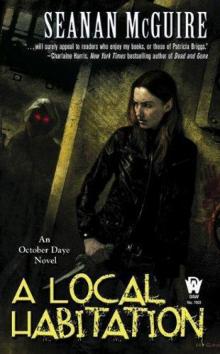 A Local Habitation
A Local Habitation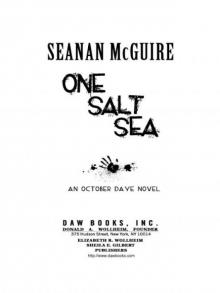 One Salt Sea
One Salt Sea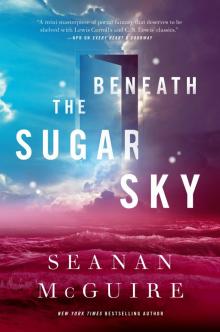 Beneath the Sugar Sky
Beneath the Sugar Sky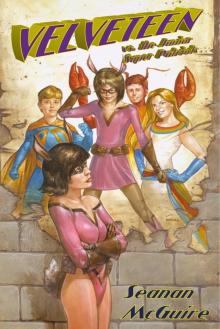 Velveteen vs. The Junior Super Patriots
Velveteen vs. The Junior Super Patriots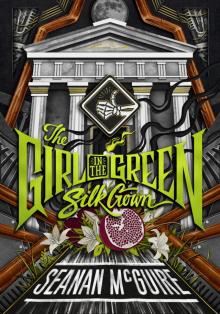 The Girl in the Green Silk Gown
The Girl in the Green Silk Gown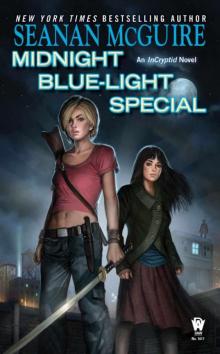 Midnight Blue-Light Special
Midnight Blue-Light Special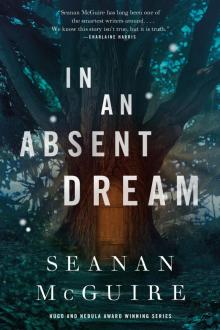 In an Absent Dream
In an Absent Dream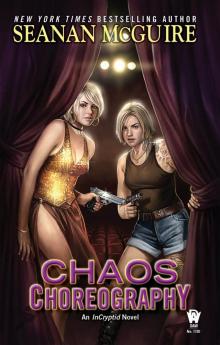 Chaos Choreography
Chaos Choreography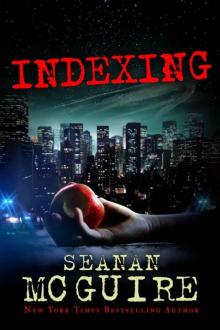 Indexing
Indexing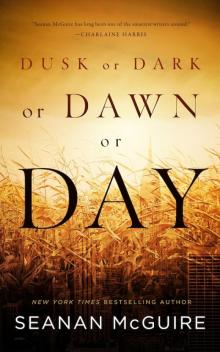 Dusk or Dark or Dawn or Day
Dusk or Dark or Dawn or Day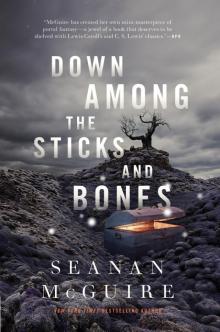 Down Among the Sticks and Bones
Down Among the Sticks and Bones The Razor's Edge
The Razor's Edge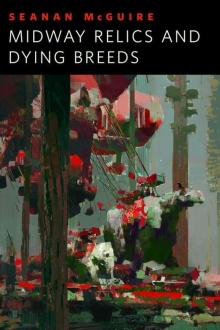 Midway Relics and Dying Breeds
Midway Relics and Dying Breeds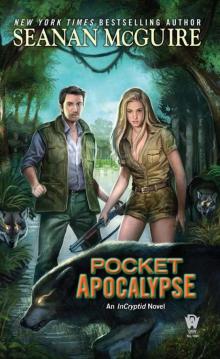 Pocket Apocalypse
Pocket Apocalypse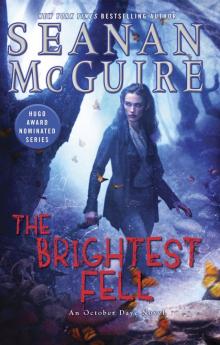 The Brightest Fell
The Brightest Fell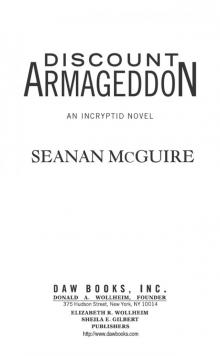 Discount Armageddon
Discount Armageddon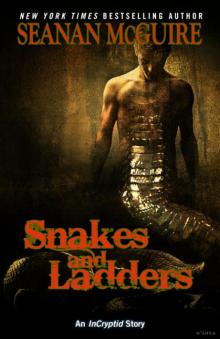 Snakes and Ladders
Snakes and Ladders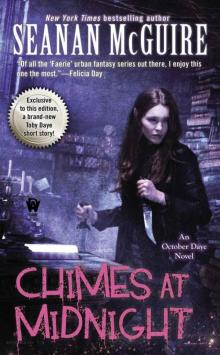 Chimes at Midnight
Chimes at Midnight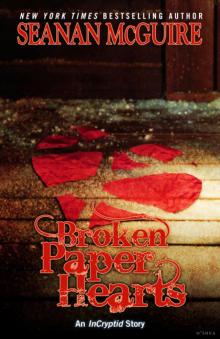 Broken Paper Hearts
Broken Paper Hearts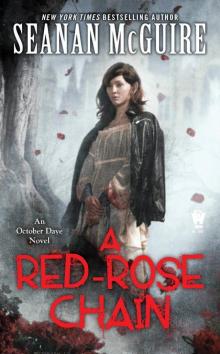 A Red-Rose Chain
A Red-Rose Chain Married in Green
Married in Green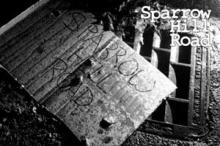 Sparrow Hill Road 2010 By Seanan
Sparrow Hill Road 2010 By Seanan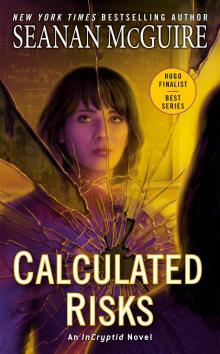 Calculated Risks
Calculated Risks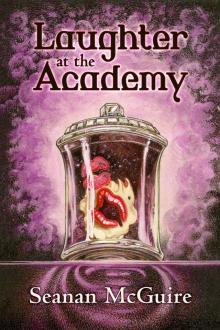 Laughter at the Academy
Laughter at the Academy The Winter Long
The Winter Long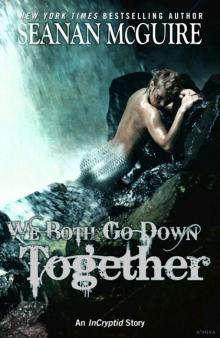 We Both Go Down Together
We Both Go Down Together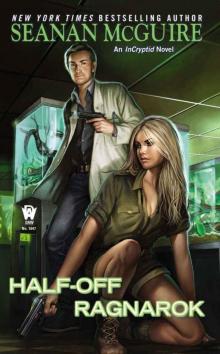 Half-Off Ragnarok
Half-Off Ragnarok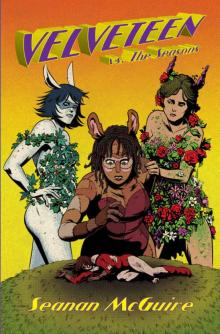 Velveteen vs. The Seasons
Velveteen vs. The Seasons Boneyard
Boneyard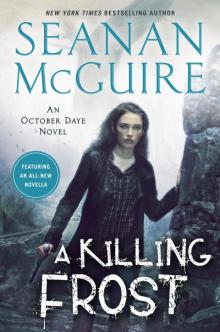 A Killing Frost
A Killing Frost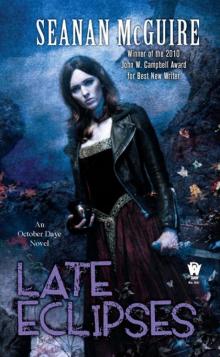 Late Eclipses
Late Eclipses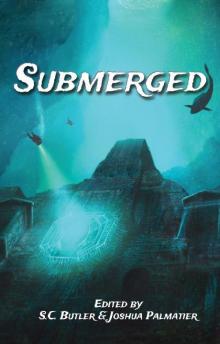 Submerged
Submerged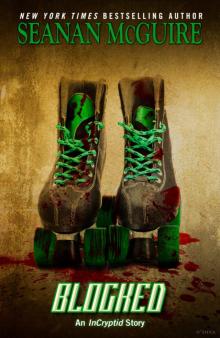 Blocked
Blocked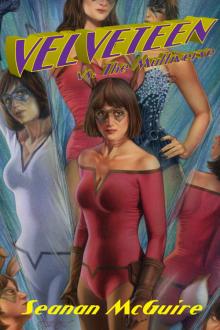 Velveteen vs. The Multiverse
Velveteen vs. The Multiverse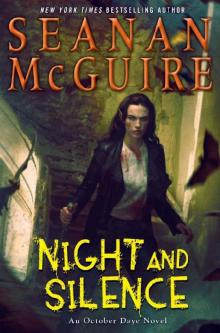 Night and Silence
Night and Silence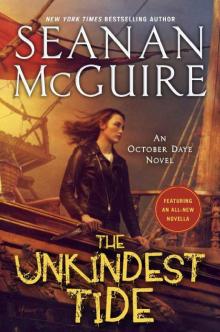 The Unkindest Tide (October Daye)
The Unkindest Tide (October Daye)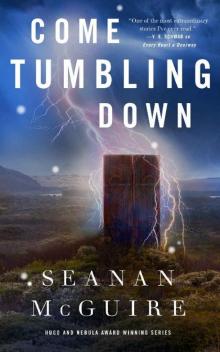 Come Tumbling Down (Wayward Children)
Come Tumbling Down (Wayward Children)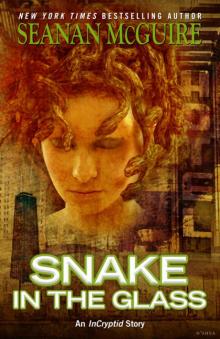 Snake in the Glass
Snake in the Glass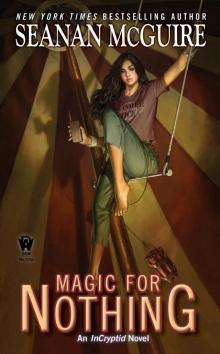 Magic for Nothing
Magic for Nothing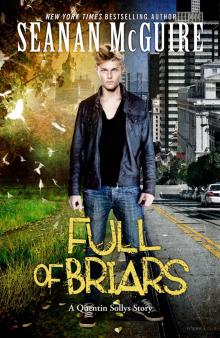 Full of Briars
Full of Briars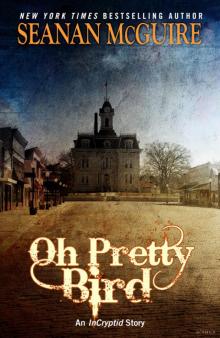 Oh Pretty Bird
Oh Pretty Bird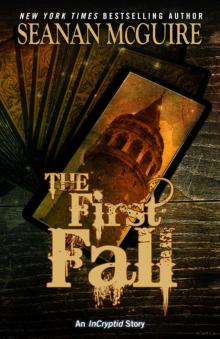 The First Fall
The First Fall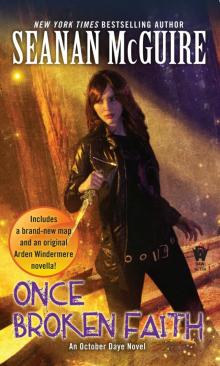 Once Broken Faith
Once Broken Faith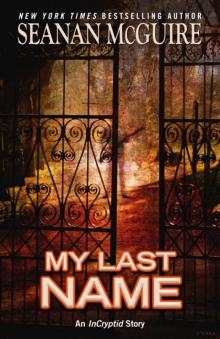 My Last Name
My Last Name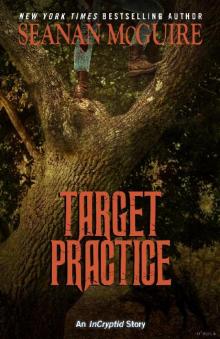 Target Practice
Target Practice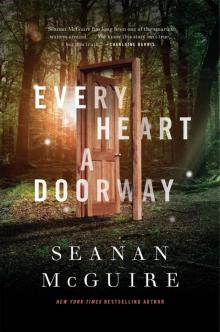 Wayward Children 01 - Every Heart a Doorway
Wayward Children 01 - Every Heart a Doorway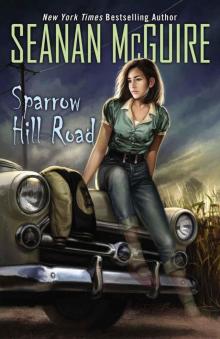 Sparrow Hill Road
Sparrow Hill Road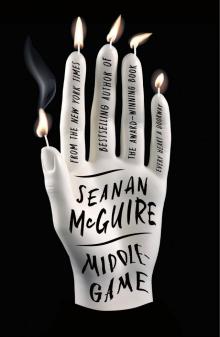 Middlegame
Middlegame Juice Like Wounds
Juice Like Wounds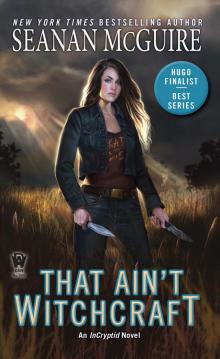 That Ain't Witchcraft
That Ain't Witchcraft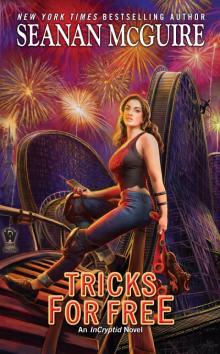 Tricks for Free
Tricks for Free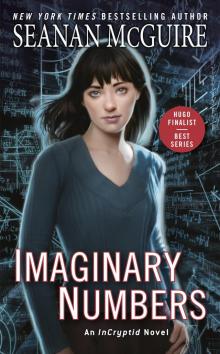 Imaginary Numbers
Imaginary Numbers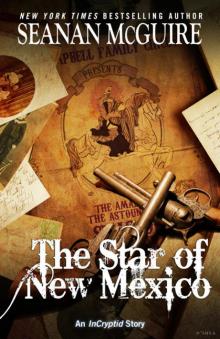 The Star of New Mexico
The Star of New Mexico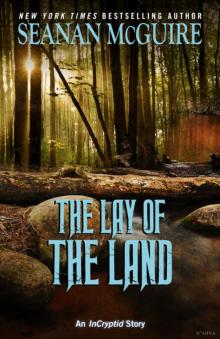 Lay of the Land
Lay of the Land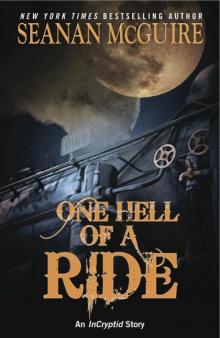 One Hell of a Ride
One Hell of a Ride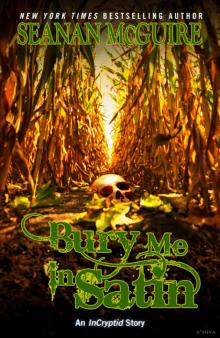 Bury Me in Satin
Bury Me in Satin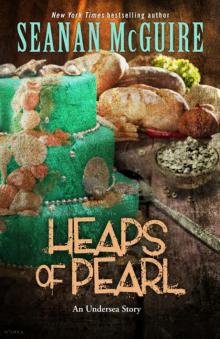 Heaps of Pearl
Heaps of Pearl Sweet Poison Wine
Sweet Poison Wine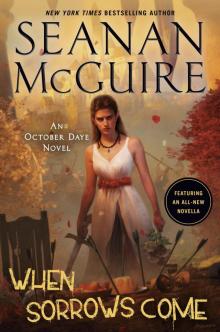 When Sorrows Come
When Sorrows Come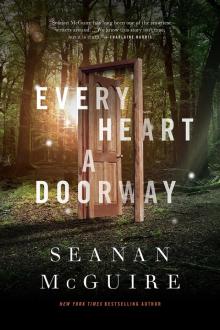 Every Heart a Doorway
Every Heart a Doorway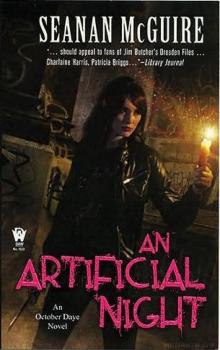 An Artificial Night - BK 3
An Artificial Night - BK 3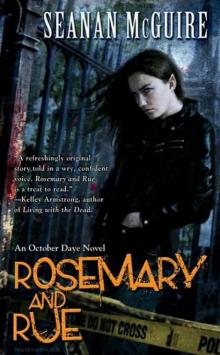 Rosemary and Rue
Rosemary and Rue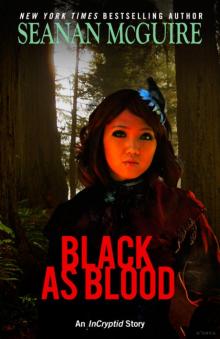 Black as Blood
Black as Blood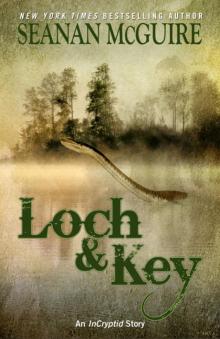 Loch and Key
Loch and Key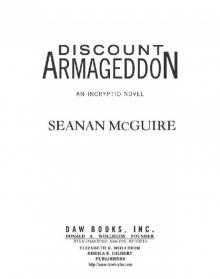 Discount Armageddon: An Incryptid Novel
Discount Armageddon: An Incryptid Novel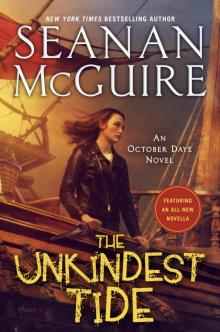 The Unkindest Tide
The Unkindest Tide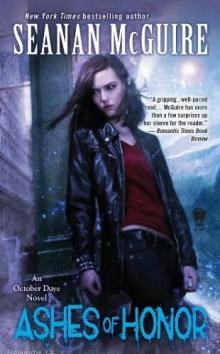 Ashes of Honor od-6
Ashes of Honor od-6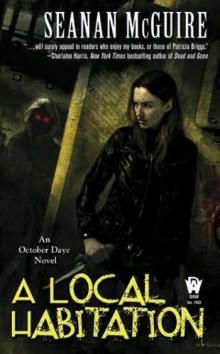 A Local Habitation od-2
A Local Habitation od-2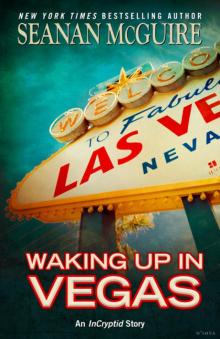 Waking Up in Vegas
Waking Up in Vegas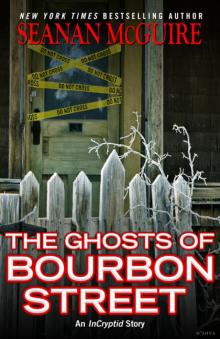 The Ghosts of Bourbon Street
The Ghosts of Bourbon Street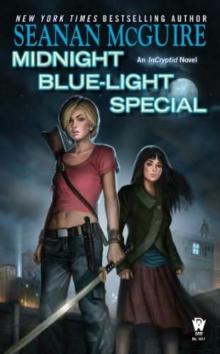 Midnight Blue-Light Special i-2
Midnight Blue-Light Special i-2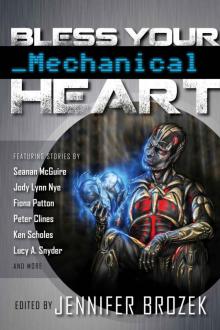 Bless Your Mechanical Heart
Bless Your Mechanical Heart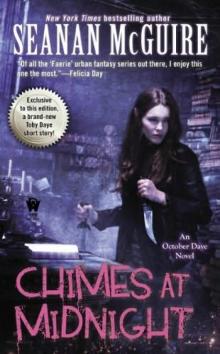 Chimes at Midnight od-7
Chimes at Midnight od-7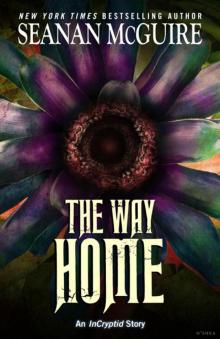 The Way Home
The Way Home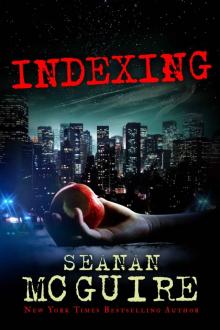 Indexing (Kindle Serial)
Indexing (Kindle Serial)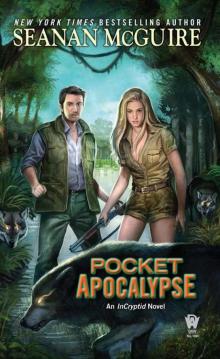 Pocket Apocalypse: InCryptid, Book Four
Pocket Apocalypse: InCryptid, Book Four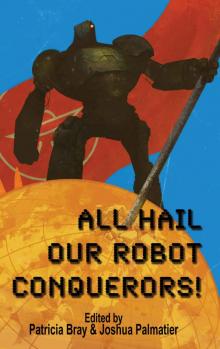 All Hail Our Robot Conquerors!
All Hail Our Robot Conquerors!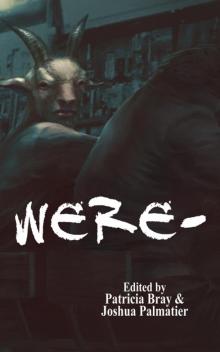 Were-
Were-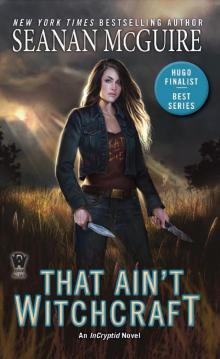 That Ain't Witchcraft (InCryptid #8)
That Ain't Witchcraft (InCryptid #8)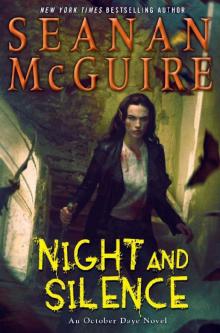 Night and Silence (October Daye)
Night and Silence (October Daye)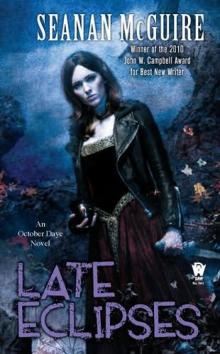 Late Eclipses od-4
Late Eclipses od-4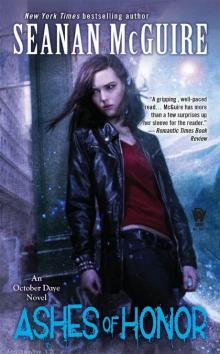 Ashes of Honor: An October Daye Novel
Ashes of Honor: An October Daye Novel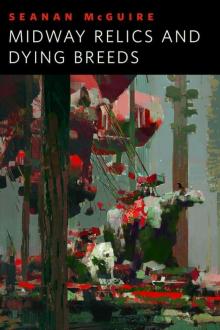 Midway Relics and Dying Breeds: A Tor.Com Original
Midway Relics and Dying Breeds: A Tor.Com Original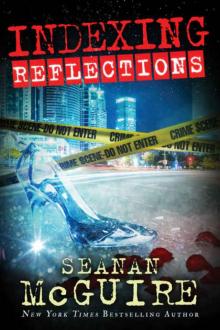 Indexing: Reflections (Kindle Serials) (Indexing Series Book 2)
Indexing: Reflections (Kindle Serials) (Indexing Series Book 2)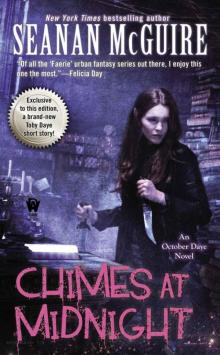 Chimes at Midnight: An October Daye Novel
Chimes at Midnight: An October Daye Novel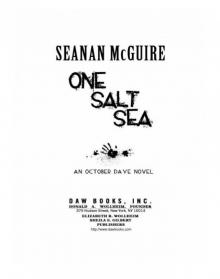 One Salt Sea: An October Daye Novel
One Salt Sea: An October Daye Novel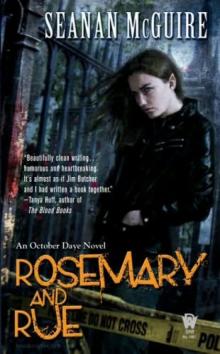 Rosemary and Rue od-1
Rosemary and Rue od-1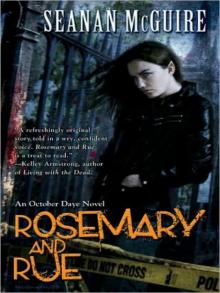 Rosemary and Rue: An October Daye Novel
Rosemary and Rue: An October Daye Novel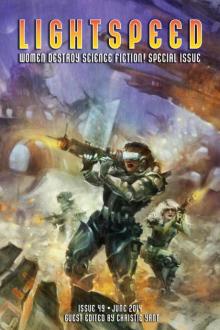 Lightspeed Magazine Issue 49
Lightspeed Magazine Issue 49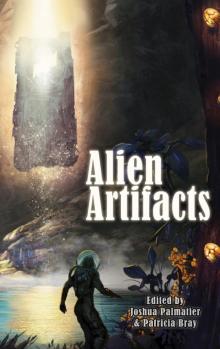 Alien Artifacts
Alien Artifacts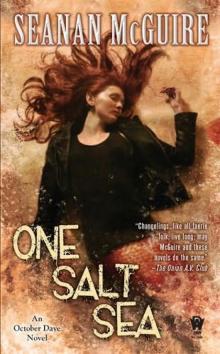 One Salt Sea od-5
One Salt Sea od-5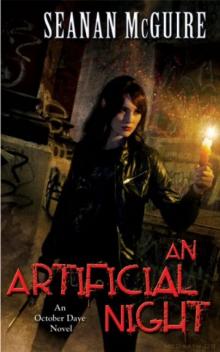 An Artificial Night od-3
An Artificial Night od-3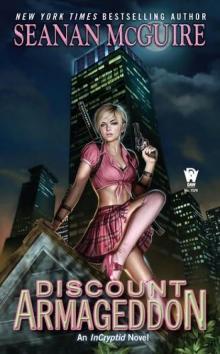 Discount Armageddon i-1
Discount Armageddon i-1